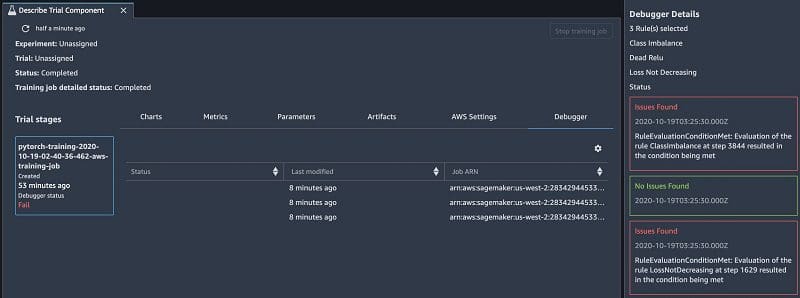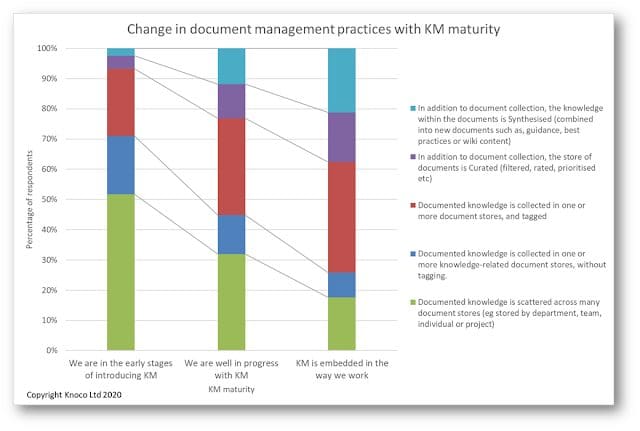Favorite Although we might think the world is already sufficiently mapped by the advent of global satellite images and street views, it’s far from complete because much of the world is still uncharted territory. Maps are designed for humans, and can’t be consumed by autonomous vehicles, which need a very
Read More
 Shared by AWS Machine Learning November 21, 2020
Shared by AWS Machine Learning November 21, 2020
Favorite Amazon Augmented AI (Amazon A2I) is now a HIPAA eligible service. Amazon A2I makes it easy to build the workflows required for human review of machine learning (ML) predictions. HIPPA eligibility applies to AWS Regions where the service is available and means you can use Amazon A2I add human
Read More
 Shared by AWS Machine Learning November 21, 2020
Shared by AWS Machine Learning November 21, 2020
Favorite Amazon Kendra is a highly accurate and easy-to-use intelligent search service powered by machine learning (ML). To make it simple to search data across multiple content repositories, Amazon Kendra offers a number of native data source connectors to help get your documents easily ingested and indexed. This post describes
Read More
 Shared by AWS Machine Learning November 21, 2020
Shared by AWS Machine Learning November 21, 2020
Favorite The next time you hear a popular song on the radio, listen to the beat behind the lyrics. Usually, a high-powered production team came up with it—but in the future, that beat could be created with help from artificial intelligence. That’s what Googler MJ Jacob predicts, as he combines
Read More
 Shared by Google AI Technology November 20, 2020
Shared by Google AI Technology November 20, 2020
Favorite Rapid development of deep learning technology has produced an abundance of open-sourced, pre-trained models in computer vision and natural language processing. As a result, transfer learning has become a popular approach in deep learning. Transfer learning is a machine learning technique where a model pre-trained on one task is
Read More
 Shared by AWS Machine Learning November 20, 2020
Shared by AWS Machine Learning November 20, 2020
Favorite This is a guest post by Jeff Finkelstein, founder of Customer Paradigm, a full-service interactive media firm and Magento solutions partner. Many small retailers use Magento, an open-source ecommerce platform, to create websites or mobile applications to sell their products online. Personalization is key to creating high-quality ecommerce experiences,
Read More
 Shared by AWS Machine Learning November 20, 2020
Shared by AWS Machine Learning November 20, 2020
Favorite COVID-19 has changed our world significantly. All of this change has been almost instantaneous, forcing companies to pivot quickly and find new ways to operate. Automation is playing an increasingly important role to help companies adjust. The ability to automate business processes with machine learning (ML) is unlocking new
Read More
 Shared by AWS Machine Learning November 20, 2020
Shared by AWS Machine Learning November 20, 2020
Favorite Improved access to documents is the second-most common strategic approach to KM. How is this improved access delivered? A question in our 2017 and 2020 surveys asked respondents how explicit or documented knowledge is managed. The question was phrased as follows: Which of the following most closely represents the organisation’s
Read More
 Shared by Nick Milton November 20, 2020
Shared by Nick Milton November 20, 2020
Favorite AWS DeepComposer provides a creative and hands-on experience for learning generative AI and machine learning (ML). We recently launched a Transformer-based model that iteratively extends your input melody up to 20 seconds. This newly created extension will use the style and musical motifs found in your input melody and create additional
Read More
 Shared by AWS Machine Learning November 19, 2020
Shared by AWS Machine Learning November 19, 2020
Favorite This week I have been blogging about the challenge of revolutionising the productivity of the knowledge worker; the challenge which Peter Drucker set for us. The lean working environment for the manual worker (image from greenhousecanada.com).Does the working environment for the knowledge worker look like this? We have looked at the
Read More
 Shared by Nick Milton November 19, 2020
Shared by Nick Milton November 19, 2020

![]() Shared by AWS Machine Learning November 21, 2020
Shared by AWS Machine Learning November 21, 2020








